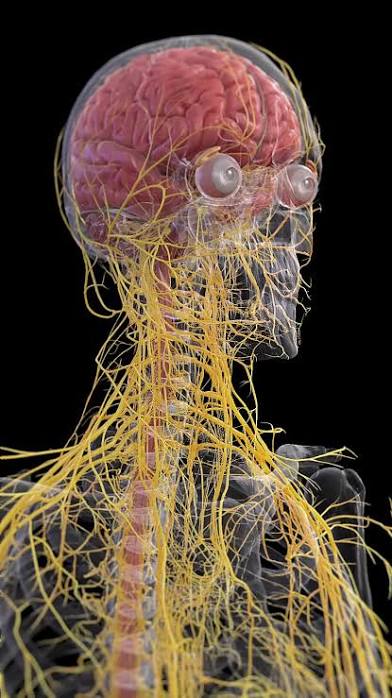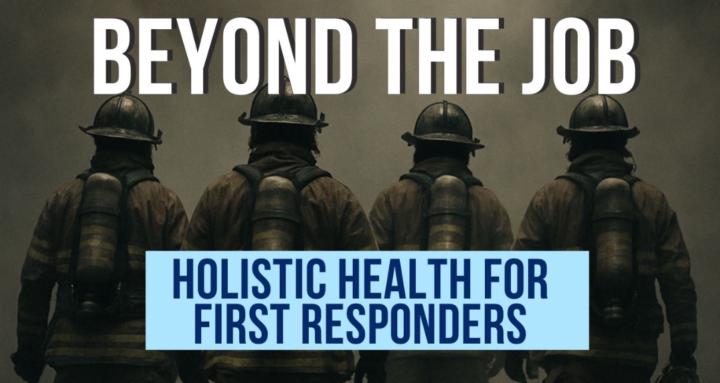
Write something
Advice
I’ve been struggling with learning how to fully wind down after shifts. I do 48/96 schedule. After shift I usually take a shower and then do some meditation then go to bed. But I still feel so tired afterwards. Any suggestions on what I can improve on to help bounce back?
Meditation of the day
https://youtu.be/LiUnFJ8P4gM?si=qw7pAs-9NRA1WVB- Let’s get real for a second… First responders are trained to run into chaos—not away from it. That kind of repeated exposure to traumatic events, sleep deprivation, and high-stakes decisions doesn’t just fade away. It leaves a mark—on your nervous system, your hormones, your mental health, and your relationships. So why meditate? Let’s break it down. 🚨 1. Meditation Helps You Switch Off “Fight or Flight” When you’re always on alert, your sympathetic nervous system (fight-or-flight) stays stuck in overdrive. Meditation activates the parasympathetic nervous system (rest-and-digest), giving your body a chance to reset. Benefits: - Lowers cortisol (stress hormone) - Reduces inflammation - Supports heart rate variability (HRV) - Promotes deep sleep and recovery 🧠 2. It Rewires Your Brain Long-term meditation increases gray matter in areas of the brain responsible for: - Emotional regulation - Focus and decision-making - Compassion and empathy This means fewer blow-ups, better control under pressure, and stronger relationships at home and at work. 🩺 3. It’s Preventative Medicine Studies show meditation can: - Reduce risk of heart disease - Decrease symptoms of PTSD - Improve immune system function - Lower anxiety and depression Meditation is one of the few tools that first responders can use anytime, anywhere—without equipment, without side effects, and without cost. 👊 4. It Makes You a Stronger Leader As a first responder, people look to you in the heat of the moment. Meditation sharpens your self-awareness, which enhances your leadership, communication, and resilience under pressure. This isn’t about becoming soft. It’s about becoming unshakeable. 🔁 Start Small: 3–5 Minutes a Day You don’t need to sit cross-legged for an hour. Start with: - Box breathing (4–4–4–4) - Body scans - Or even just sitting in silence while focusing on your breath
1
0
A Message From Your Nervous System (Yes, Really)
Hey you — it’s me. Your nervous system. I know, I don’t usually write emails… but I’ve been trying to get your attention for a while now. You just haven’t been listening. I run the whole show — your sleep, metabolism, hormone production, energy, focus, performance… even how fast you age. If I’m in balance, you feel unstoppable. But when I’m constantly stuck in “fight or flight” mode? Everything starts falling apart. Let me break it down real simple: When I’m Burned Out: - You can’t sleep - Your cortisol and testosterone get out of whack - Your metabolism slows down and fat builds up - You feel anxious, edgy, exhausted — and wonder why nothing’s working - Long-term health? Forget about it. You’re on a fast track to burnout and disease What Wears Me Down: - Waking up to alarms at 3 AM - Living off caffeine and adrenaline - Never getting real recovery - Skipping meals or eating junk on the go - Working 24s without shutting off afterward - Carrying the weight of stress but never releasing it What Keeps Me Balanced: - Deep, consistent sleep - Breathwork and stillness (just 3–5 minutes makes a difference) - Getting sunlight in the morning - Moving your body, but not overtraining when I’m already shot - Taking time to downshift after your shift - Reminding yourself you’re safe — even when your mind is racing Here’s one thing you can do today to help me help you: Box Breathing. It’s my favorite. 4 seconds in. 4-second hold. 4 seconds out. 4-second hold. Repeat it for 3–5 minutes, and I’ll start to calm everything down. Your heart rate, your mind, your stress — it all starts with me. So if you want to show up for your crew, your family, and your own longevity… take care of me. I’m not here to punish you — I’m here to protect you. But even I need a break sometimes. With love (and fewer cortisol spikes), Your Nervous System
2
0

Stress Management Is The Missing Link
Most of us think that getting healthy is all about exercise and nutrition. But here’s the truth: for firefighters, health actually begins upstream with stress management. Without managing stress first, the benefits of exercise and nutrition are limited, and sometimes even reversed. Firefighting is one of the most demanding professions out there, both mentally and physically. Here’s how stress impacts health in ways we often overlook: Sleep 🛌: High stress levels wreak havoc on sleep. As firefighters, disrupted sleep patterns are common—but stress compounds this. Elevated stress interferes with the ability to get quality rest, reducing the critical stages of sleep that support muscle recovery, memory, and overall energy. Poor sleep, in turn, raises stress levels, creating a vicious cycle that wears us down over time. Metabolism 🔥: Chronic stress releases high levels of cortisol, which slows metabolism and promotes fat storage, especially around the abdomen. Over time, this imbalance makes it harder to burn fat, build muscle, and maintain energy for long shifts or intense training sessions. Fitness & Recovery 💪: Stress management is essential for effective workouts and recovery. High-stress levels tax the nervous system, leading to quicker fatigue, reduced endurance, and a higher risk of injury. When stress is unmanaged, even the best fitness plan won’t deliver results as effectively. Imagine what could happen if stress management was the first focus—improving sleep, balancing hormones, and unlocking the full potential of your fitness goals. It’s the missing piece to health that too many overlook. 👉 Schedule a call with me today to discuss creating a personalized plan that starts with stress management. We’ll build a foundation that supports the challenges of the job while keeping you at your healthiest. Watch my video on the importance of stress management for firefighters here: 📹
2
0

1-4 of 4
Powered by




